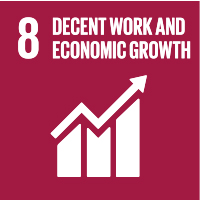Data Revolution for Ensuring Decent Work for all With A Focus on Youth
This event is a side event of the High-Level Political Forum (HLPF) 2019. Participants include representatives from member states, representatives of international organizations, academia and major groups and other stakeholders.
The primary objective of this side event is to bring together policy makers at the national level, international organizations, data experts, private sector, academia, major groups and other stakeholders to share best practices and exchange views on how governments can mobilize the data revolution to ensure decent work for all with a focus on youth.
Visit the event page
description
Data plays a critical role in measuring development progress, planning development interventions and addressing exclusion. However, many developing countries currently face data gaps, which can lead to untargeted and ineffective policy formulation and development planning as well as inaccurate and delayed tracking of development progress.
It is therefore paramount to leverage the current data revolution to ensure data-driven policymaking in the implementation of the 2030 Agenda.
Today we have the largest generation of youth in history – a population that will reach 2 billion youth by 2030 – and it is therefore vital to promote youth employment worldwide. Data can contribute to achieving SDG 8 through capturing demand data directly from the industries to develop market-driven skills for the men and women entering the workforce, in turn enabling governments to ensure decent jobs for all. Furthermore, the rapid pace of technological advancement brings unprecedented opportunities to leverage Big Data to generate predictive data on future market demand.
Across both developed and developing countries, there are big differences in how countries collect, analyze and use data, leading to varying degrees of effectiveness in policies and interventions. There are therefore great benefits for countries in exchanging experiences in this area.






